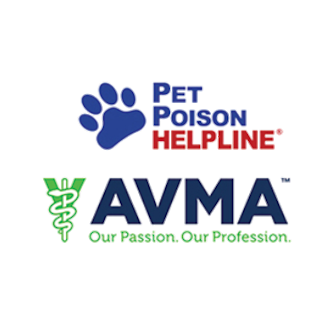Mid-Columbia Pet Emergency Service

Experiencing a Pet Emergency?
Do not hesitate to call us at (509) 547-3577 or bring your pet into our facility.
OPEN 24/7! NO APPOINTMENT NEEDED
Are you unsure what constitutes an emergency?
Below is a list of conditions that are recommended to be seen as soon as possible:
SEVERE BLEEDING OR BLEEDING THAT HASN'T STOPPED WITHIN 5 MINUTES
Can be characterized by trauma, animal attack or bite wounds, lacerations, and/or puncture wounds.
If you notice that your pet is bleeding, depending on the location of the injury, gentle pressure with a clean towel is generally helpful to stop the flow of blood. Elevating the area can also help decrease blood flow. Wrap the area with a towel and tape and seek veterinary care immediately. If you notice even small amounts of bleeding when there has been no trauma or injury to provoke it, or bruising in the absence of injury, seek veterinary care as soon as possible.
CHOKING, DIFFICULTY BREATHING OR NONSTOP COUGHING AND GAGGING
Pets may cough for a variety of reasons, including allergies, tracheal collapse, lung and heart disease, or due to the lodging of a foreign material/object in the windpipe.
Persistent and severe coughing requires urgent medical attention.
SNAKE BITES
Snake bites/envenomation can be life-threatening and pets that are suspected of being bit need to be seen by a Veterinarian immediately.
Clinical symptoms show severe pain and swelling at the site of the bite, difficulty breathing, muscular weakness, impaired vision, shock, and bleeding.
INSECT BITES OR STINGS
Bee stings may cause allergic reactions and the severity of the reaction varies up to anaphylactic which can be life-threatening. Swelling, hives, redness, and pain are some symptoms to be noted.
Spider bites (brown recluse and black widow) need to be seen immediately. Brown recluse spiders cause tissue damage around the bite itself which can become infected secondary to the bite. Black widows carry enough toxins in a bite that is lethal to a small mammal.
BLEEDING FROM NOSE, MOUTH, RECTUM, COUGHING UP BLOOD, OR BLOOD IN URINE.
Trauma, nasal foreign bodies, dental disease (tooth root abscess), nasal tumors, infections (bacterial, fungal, parasitic), certain blood disorders, such as clotting abnormalities, excessively viscous blood, and tick-borne diseases that can cause low platelet counts.
Excessive and/or nonstop bleeding is life-threatening and needs to be addressed immediately.
INABILITY TO URINATE OR PASS FECES (STOOL) OR OBVIOUS PAIN INCLUDING VOCALIZATION ASSOCIATED WITH URINATING OR PASSING STOOL
Constipation and difficulty passing stool can be signs/symptoms of an underlying disease including gastrointestinal obstruction and should be assessed by a Veterinarian as soon as possible.
Difficulty urinating, straining to urinate, blood in urine, or discoloration are all symptoms of underlying conditions (bladder stones, UTI, masses, and obstructions) that should be addressed by a Veterinarian.
Urinary obstructions are life-threatening and the pet should be seen IMMEDIATELY.
INJURIES TO YOUR PET'S EYE(S)
Animals with minor ocular trauma may show the following symptoms Increased blinking, squinting and tearing redness of the eye, corneal cloudiness minor bleeding from the eye or eyelids, bruising around the face and head protrusion of the third eyelid and pawing at the eye.
Animals with major ocular trauma show the following symptoms: Signs of extreme pain, reluctance to have the head touched or examined, closed and squinted eyelids, increased eye discharge (tearing, mucous strands or bleeding), significant bleeding within the eye with subsequent blindness, significant color changes of the eye such as corneal cloudiness and increased redness, deformities in the shape of the eye or structures around the eye.
Even the smallest eye injury (a tiny scratch, for example) can develop into an infected wound and loss of vision. Never gamble with your dog's eyesight - always seek immediate treatment, even for minor eye injuries.
TOXIN/POISON
Ingestion: Antifreeze, xylitol, chocolate, rodent poison, prescription medications, recreational drugs, plants, etc.
Inhalation: Carbon monoxide, insecticides, recreational drugs, etc.
Topical: Motor oil, paint or paint thinner, gasoline, tar, insecticides, over-the-counter flea and tick preventatives, etc.
Call the Pet Poison Helpline 1(855) 213-6680, your veterinarian or our facility immediately upon ingestion or exposure to a known or possible toxin. Moreover, do not induce vomiting or offer any antidotes without the advice of a veterinarian, toxicologist, or poison control specialist.
SEIZURES, ACTIVELY SEIZING AND/OR STAGGERING
A seizure or convulsion is a sudden excessive firing of nerves in the brain. It results in a series of involuntary contractions of the voluntary muscles, abnormal sensations, abnormal behaviors, or some combination of these events. A seizure can last from seconds to minutes.
The severity of the seizure can vary between a far-away look and twitching in one part of the face to your dog/cat falling on their side, crying out, gnashing their teeth, urinating, defecating and paddling their limbs.
OTHER EMERGENCIES
Fractured bones, severe lameness, inability to move leg(s), and obvious paralysis.
Obvious signs of pain or extreme anxiety (panting, pacing, vocalizing, increased body temperature)
Heat stress or heatstroke
Severe vomiting or diarrhea - more than 2 episodes in a 24-hour period, or either of these combined with obvious illness or any of the other problems listed here
Refusal to drink for 24 hours or more
Unconsciousness

